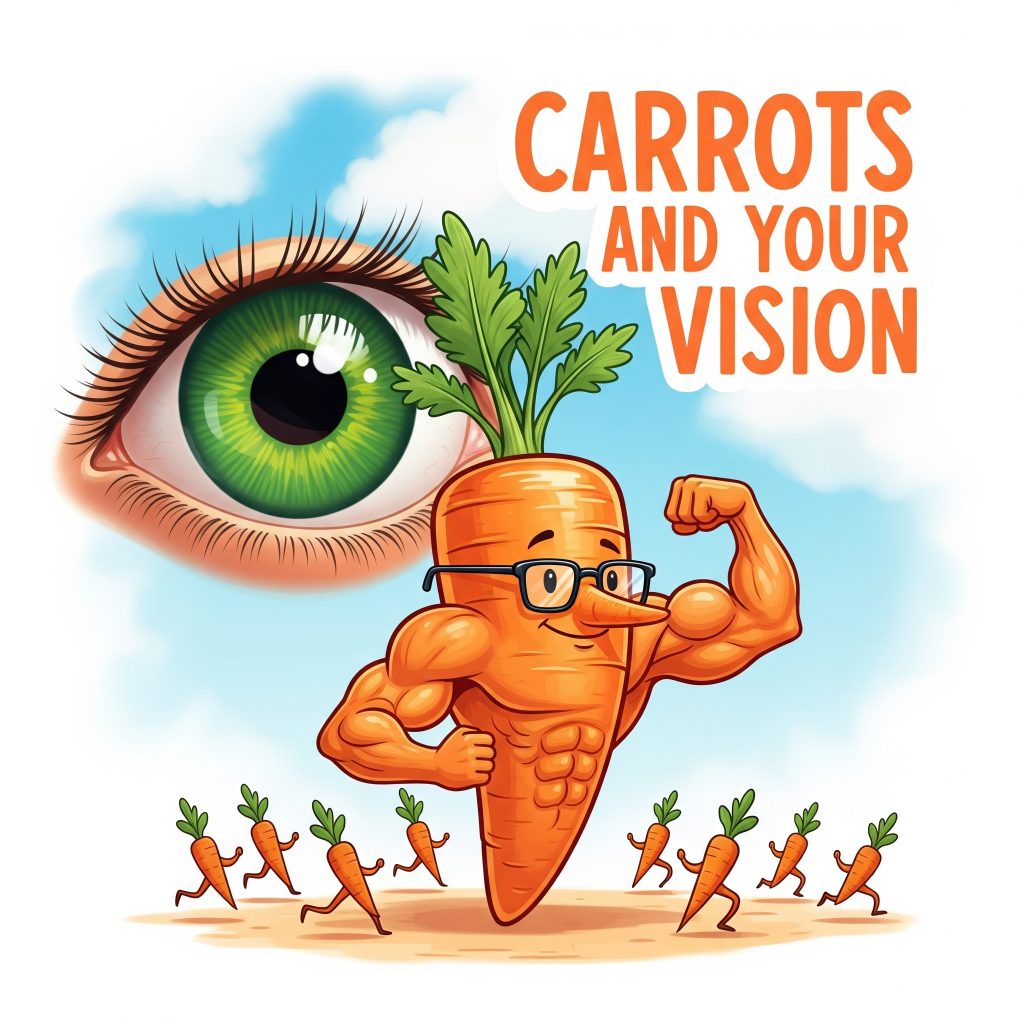
Common Foods: The Truth About Carrots and Your Vision
You have probably heard that carrots are great for your eyesight, especially your night vision. While that may sound like an old wives’ tale, there is a kernel of truth behind it. Carrots are packed with beta carotene, a pigment your body converts into vitamin A, which plays a vital role in maintaining healthy vision.
Vitamin A is essential for forming rhodopsin, a light sensitive pigment in your eyes that helps you see in low light. Without enough vitamin A, you can experience night blindness or more severe vision problems. However, if your vision issues are unrelated to vitamin A deficiency, eating carrots will not magically sharpen your sight.
In addition to beta carotene, carrots contain lutein, an antioxidant that supports a healthy macula, the part of the retina responsible for central vision. Lutein and its partner zeaxanthin help filter harmful light and protect retinal cells, lowering the risk of age related macular degeneration.
It is important to remember that carrots are just one piece of the puzzle. A balanced, eye healthy diet includes fruits, vegetables, and other nutrient dense foods. Fatty fish rich in omega 3s, citrus fruits packed with vitamin C, nuts and seeds with vitamin E, and leafy greens all support long term eye health.
Also, while carrots offer benefits, overindulging can lead to a harmless condition called carotenemia, where your skin takes on an orange hue from too much beta carotene. Thankfully, this is reversible and not dangerous, but it does highlight the importance of moderation and dietary variety.
At Findlay Creek Eye Clinic, we encourage patients to nourish their eyes from the inside out. Combine a diet rich in vitamin A, lutein, omega 3s, and antioxidants with regular eye exams and lifestyle habits such as UV protection and limiting screen time for optimal long term eye health. Healthy vision is built one nutritious bite at a time.